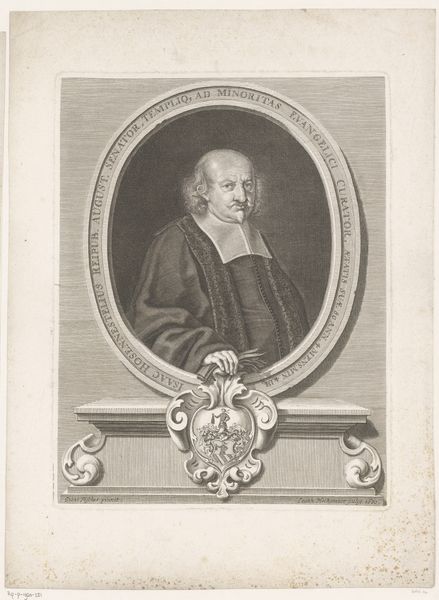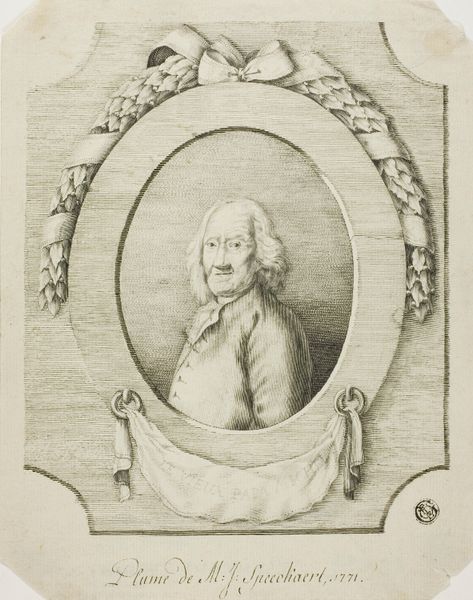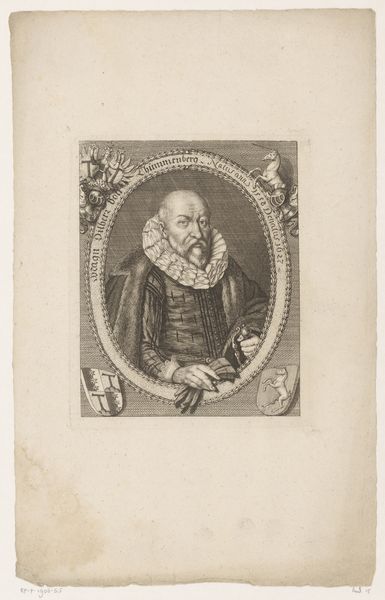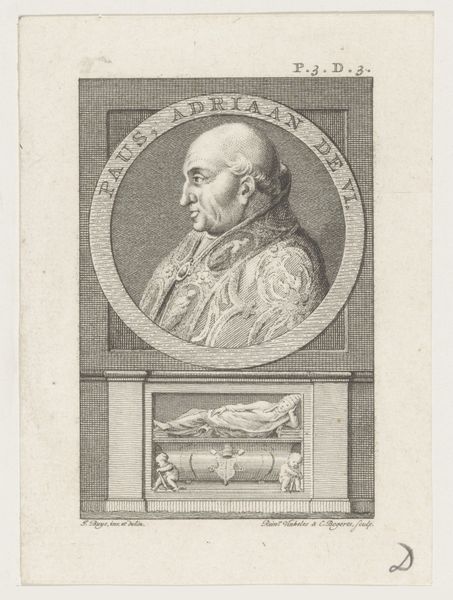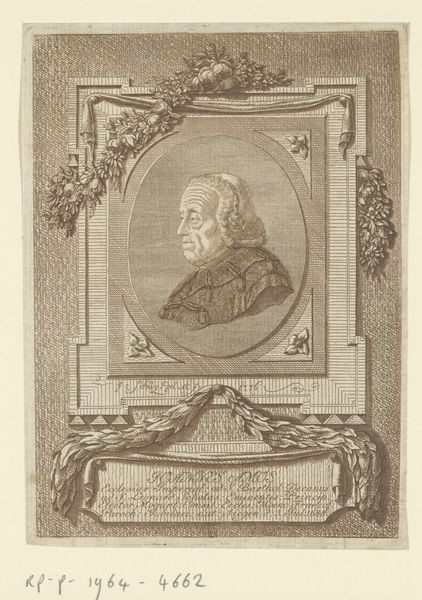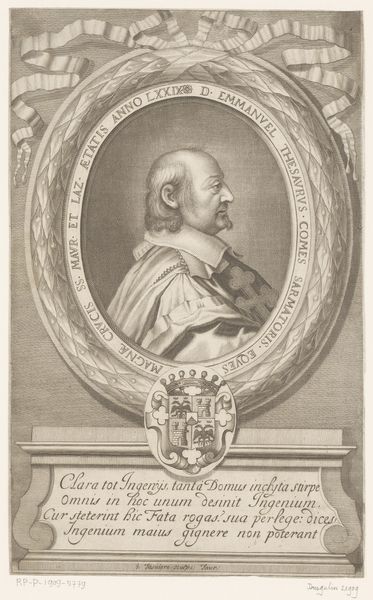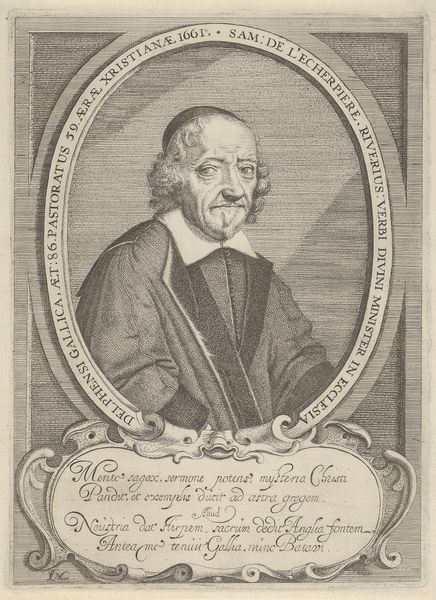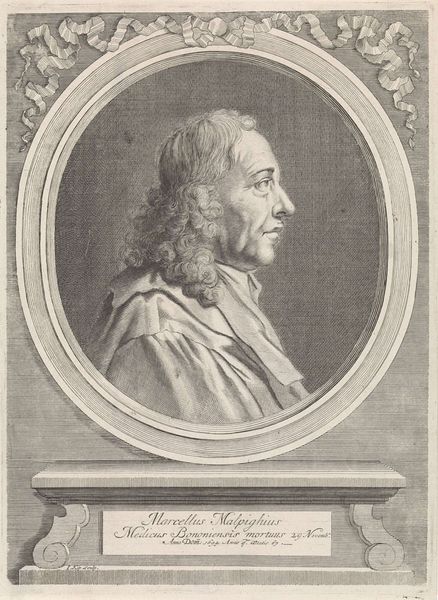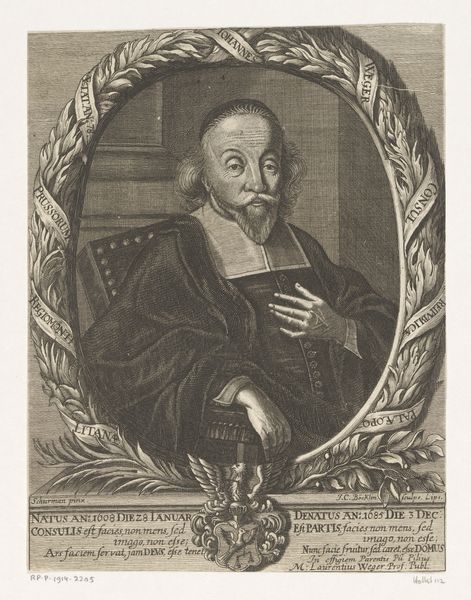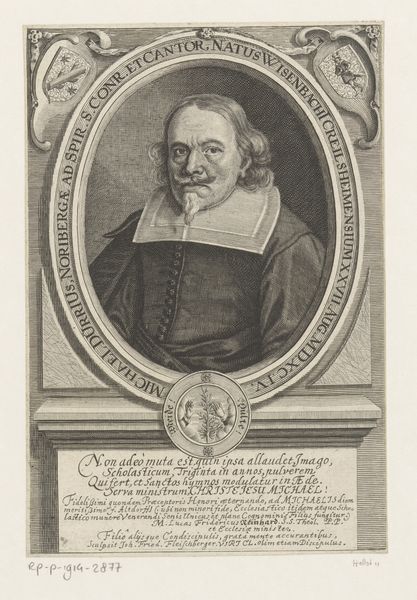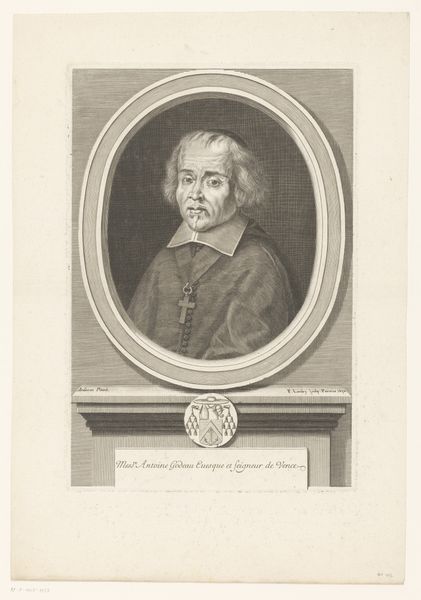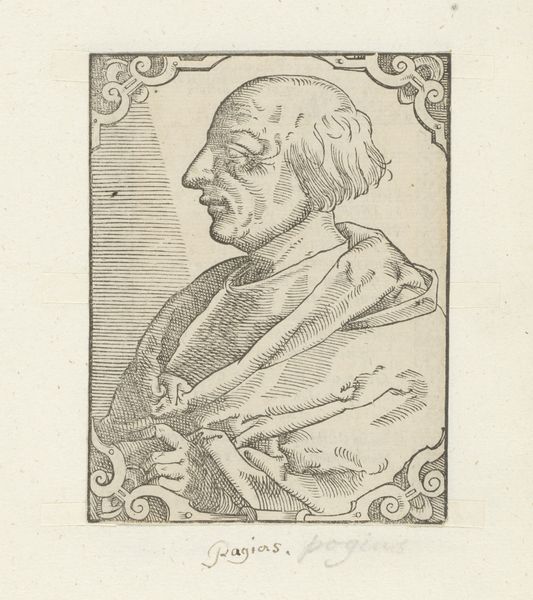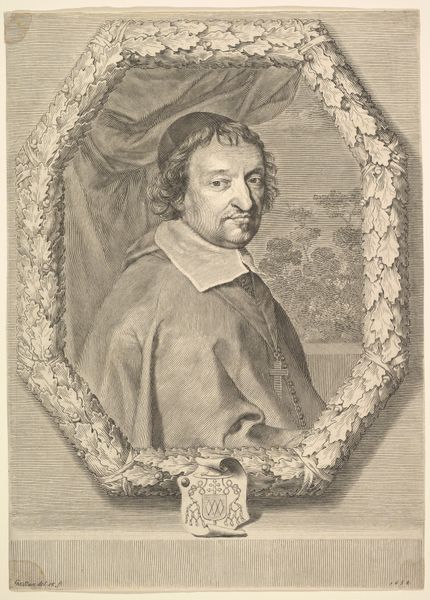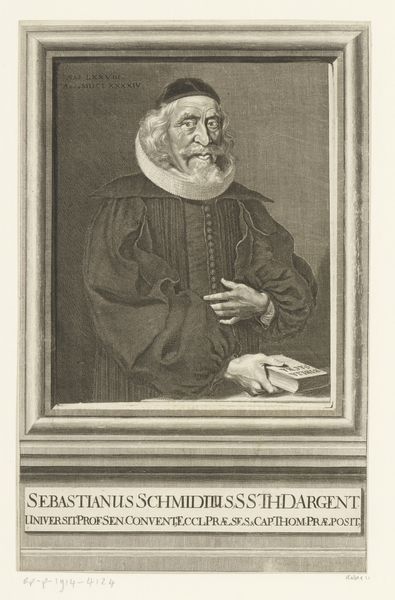
drawing, ink
#
portrait
#
drawing
#
dutch-golden-age
#
charcoal drawing
#
figuration
#
oil painting
#
ink
#
charcoal
Dimensions: height 373 mm, width 274 mm
Copyright: Rijks Museum: Open Domain
Lambert Visscher rendered this portrait of a man in pen, brown ink, and gray wash in the Netherlands, sometime between 1633 and 1690. The subject is framed by a round window or trompe l’oeil oculus, which sits above a stone ledge and decorative cartouche. The image is striking for its combination of monumentality and ephemerality, resembling both a civic monument and a quick sketch. During the Dutch Golden Age, the production of art expanded beyond the church and aristocracy, becoming more closely tied to civic institutions and the market. Artists such as Visscher navigated these new social conditions by producing images for a wider range of patrons and purposes. To better understand this work, we might consult period documents—letters, inventories, guild records—that shed light on the artist's career and the social function of portraiture at the time. The meaning of art is always contingent on its social and institutional context.
Comments
No comments
Be the first to comment and join the conversation on the ultimate creative platform.
